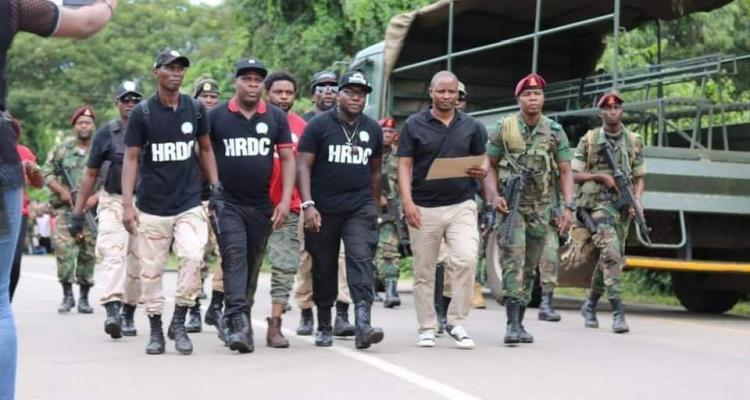
“Activists fight for civil rights, for justice, for freedom. Activist movements are found in every country in the world and often focus on human rights. Throughout history, human rights activists have resisted slavery, oppression, patriarchy, and segregation. As long as there is injustice, there will be activists.” – Human Rights Careers.
Human Rights Defenders or human rights activists are individuals who, either alone or in collaboration with others, act to promote or safeguard human rights. They can be journalists, environmentalists, whistleblowers, trade unionists, lawyers, teachers, housing campaigners, and more.
However, I’m dissatisfied with the way the Malawi Human Rights Defenders Coalition (HRDC) organized and conducted themselves during their mass protests. Firstly, they allowed themselves to be manipulated by politicians. They allied themselves with the Malawi Congress Party (MCP), which has compromised their voice today. They cannot speak out against the flaws of this government due to their affiliation with the ruling alliance.
Secondly, HRDC resorted to violence during their demonstrations, even endorsing the use of weapons like catapults. These catapults were used against police officers.
Thirdly, HRDC provided alcohol and drugs to participants in those violent protests. The youth who engaged in violence did so under the influence of substances sponsored by HRDC.
The political context frames human rights in relation to their role in international human rights practices, particularly in justifying interventions against states that perpetrate or fail to prevent human rights abuses.
Human rights are best understood as both moral and legal rights. The legitimacy of human rights is rooted in their status as moral rights. However, the practical effectiveness of human rights largely depends on their transformation into legal rights.
I believe that the Human Rights Defenders Coalition (HRDC) should be the last to challenge President Lazarus Chakwera to address the economic crisis and mobilize Malawians for an early election. HRDC chose to work with MCP and Lazarus Chakwera, so they should continue their partnership until the end.
We’ve had enough from HRDC between 2019 and 2020. We’ve also observed how inactive HRDC has been during the challenging years of 2020.
Malawians have endured a rising cost of living, difficulties in fertilizer procurement, artificial food shortages, fuel and forex challenges, and increasing debt crisis—issues that have been neglected and unresolved. We don’t need an early election now; we should patiently wait for either the first protests of Malawi or the year 2025 to vote for a government aligned with people’s wishes.
HRDC members and Chairperson Gift Trapence are futilely expending their time and resources warning the President to demonstrate commitment to their demands. Chakwera has been failing since the beginning of his term. HRDC is late and irrelevant in mobilizing Malawians through their methods, as governmental violations of constitutional rights are already deeply rooted. We simply don’t require HRDC today, as we have matured in facing challenges. Our most potent demonstration will be in September 2025, when we hold our ballot papers and vote once again.
HRDC should have urged Chakwera to resign due to his inability to suspend all international and local travel as part of his own austerity measures. Such words are inadequate for a President who is exacerbating the country’s poverty.
HRDC should have challenged the President long ago to provide sustainable and actionable solutions to the fuel crisis, ensure professional and transparent procurement, management, and timely distribution of fertilizer for the AIP program, and present a clear and actionable short, medium, and long-term crisis plan outlining the path to economic recovery.
President Chakwera has always been engaged in talk shows without implementing substantial actions. We’re in a crisis of leadership, forex, fuel, maize, fertilizer, and corruption, while the President frequently travels with a substantial entourage, both within Malawi and abroad, receiving USD allowances.
By the way, an airport employee informed me that the Tonse Alliance Government’s large entourage accompanying President Reverend Lazarus Chakwera consistently prefers to travel on the most expensive airplanes. How can Malawi expect to maintain foreign reserves in this manner? The Tonse Alliance Government appears to be indulging itself excessively














